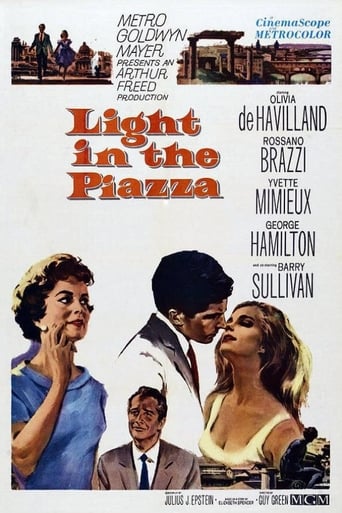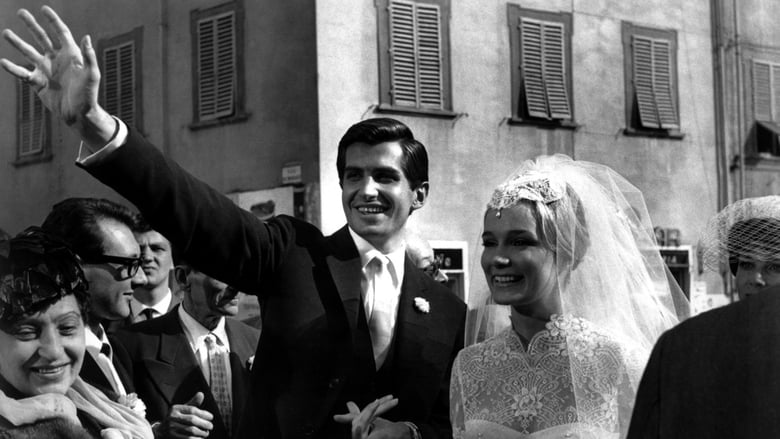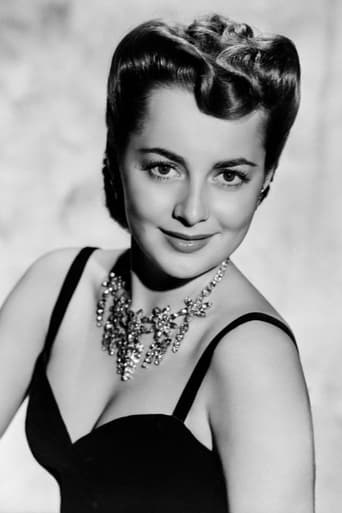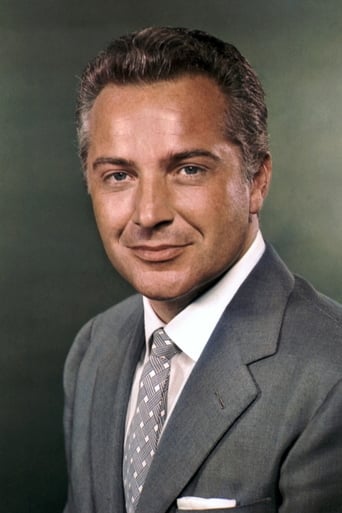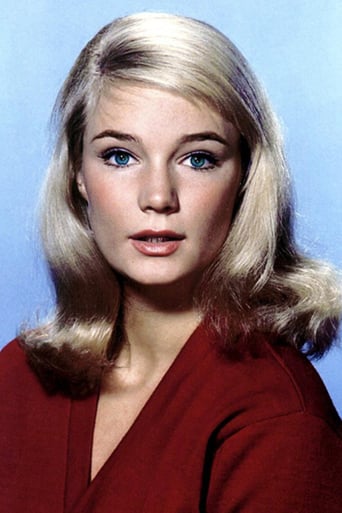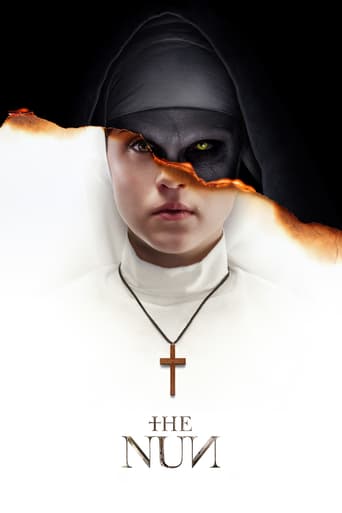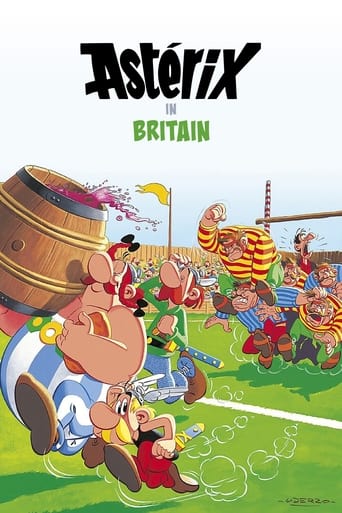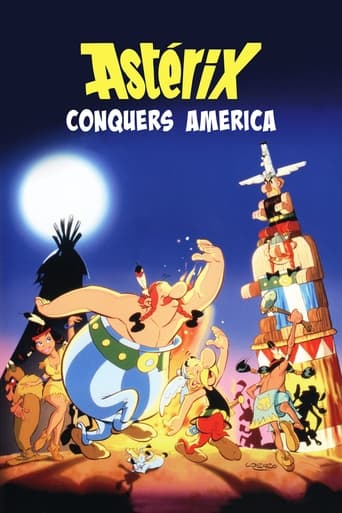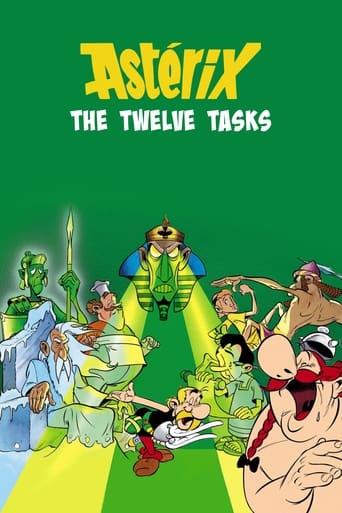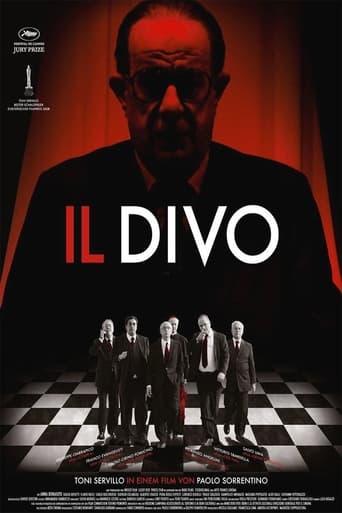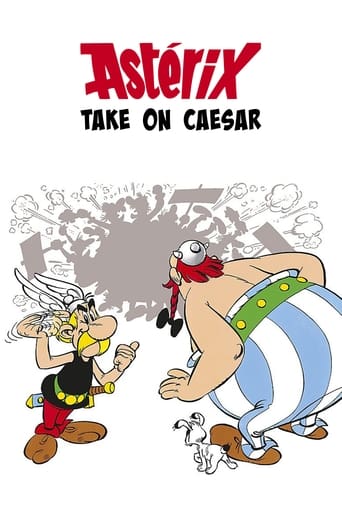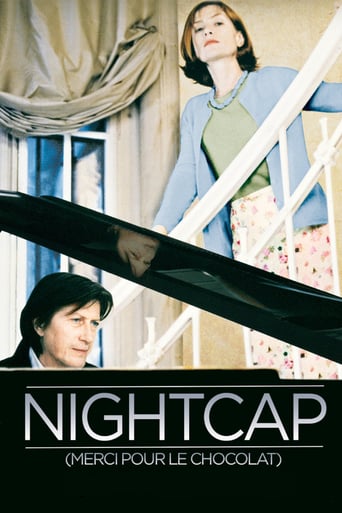Light in the Piazza (1962)
A young American woman traveling in Italy with her mother is slender, blonde, beautiful and there is something charmingly naive about her. Fabrizio Naccarelli seems to always know where the mother and daughter will sightsee next. Signor Naccarelli is just as concerned about where this will lead as Mrs. Johnson is. Then she starts thinking that perhaps her daughter can be a wife of a wealthy young man in a society where all she has to do is look beautiful. What happens if Signor Naccarelli finds out who his prospective daughter-in-law really is?
Watch Trailer
Cast


Similar titles
Reviews
Just perfect...
hyped garbage
Fresh and Exciting
The movie really just wants to entertain people.
I found this move, seen on Turner Classic Movies, to be a very touching love story. I particularly liked the Olivia deHavilland as Meg Johnson, the mother of a beautiful young woman, named Clara with a slight mental impairment, played by Yvette Mimieux. On a trip to Italy with her mother, Clara is eyed by the young men she passes in the piazzas of Florence and Rome. Before long, she is pursued by Fabrizio Naccareli, a young Florentine, played by George Hamilton, who seems to have fallen in love with her at first sight. He is very enthusiastic and playful, a love match for Clara. At the same time, Fabrizio's father, Rosanno Brazzi, who is married, strikes up a friendship with Meg. It was apparent that while she wants the best for her daughter, Meg treats her disability as a social stigma. This seems to be in contrast with Fabrizio's Italian family, who have a more natural approach to Fabrizio, who is also somewhat immature, while totally charming. Some of the movie is very dated; for example, the way Olivia deHavilland lights a cigarette every time she encounters a moment of stress. The smoking theme becomes more pronounced with people offering each other cigarettes, not to mention Clara's father's high paying job in the tobacco industry. There is a bit of a running joke linking the Johnsons with actor Van Johnson, whose name is less familiar to a 21st century audience than it was in 1962. However, these telltale signs that date the movie also seem to be part of its appeal. In other respects, the movie is ahead of its time and seems to tell viewers to allow love to flower and grow. Meg found a change of heart on the trip. While reluctant to let go of her free-spirited daughter, she couldn't deny the love that Fabrizio and Clara shared. The movie throws a few twists in how the story plays out. As always, it is a credit that TCM brings movies out of the dusty corners of the past. They tell us something about the time while giving us unexpected entertainment.
This takes place in Florence Italy and was shot on location. American Meg Johnson (Olivia deHavilland) is visiting with her 26 year old daughter Clara (Yvette Mimieux). They meet handsome Italian Fabrizio (George Hamilton) and Fabrizio and Clara fall madly in love together. The problem is that Clara had an accident as a child and is emotionally at the age of 10. Meg protects her and is constantly with her. However she realizes Fabrizio and Clara really do love each other. What to do?The plot is interesting, the scenery is beautiful and it's very colorful. Also deHavilland has a different gorgeous dress for each scene...but this just doesn't work. It moves VERY slowly and turns into little more than a travelogue of Italy. There's not enough material here for a full movie...and it shows. Also Hamiltons' attempts at an Italian are downright hysterical. Also I didn't buy the final happy resolution for one second. Still the acting by Mimieux, Rossano Brazzi and especially deHavilland is great and it LOOKS good...but I found it incredibly dull. According to IMDb this lost money at the box office. It's easy to see why.It was revived as a Broadway musical in 2005 which was a modest hit and won a few Tonys. I didn't like that either.
When we speak of 'tone' in cinema or literature -- this is one to study.There is a scene midway through 'Light in the Piazza' where Yvette Mimieux, as a brain-damaged glamorous girl, fits right in with the teenage smart set of Florence: she can talk hair, make-up, and movie stars with the best of them -- and is a natural star as she twirls in her chic summer outfit. This is but one great moment in the expert script by Julius J. Epstein, from the book by Elizabeth Spencer. It strikes me as a very modern film on my recent first viewing (2017).Olivia de Havilland is an affluent American vacationing in sunny Italy with her special-needs daughter, acting as companion and devoted guardian. The girl turns the head (and why not?) of a goofy, obsessive handsome boy from a wealthy Florentine family -- and a grand romance begins. But should it?-- Olivia contemplates the question for a splendidly entertaining hour and a half or so -- amid pretty people in pretty clothes in pretty locations.This is a daring film from a daring book -- and succeeds because the comedy is both broad (George Hamilton -- hilarious -- as the boy, and Yvette Mimieux as the girl share *superb* comic timing and *perfect* chemistry), and subtle (de Havilland with Rossano Brazzi as the boy's father -- both wise and vulnerable -- and *randy*). The laughs are abundant -- deep laughs -- I think because as one enjoys what for all appearances is a sunny romantic comedy, the genre is turned on its head as one is constantly reminded of the central human problem of the story: what are the ethics involved when a young adult diagnosed 'with the mind of a child' naturally desires romance and sex with a 'normal' (and sincere) young adult?I've always enjoyed Olivia d. in the company of stronger performers in the old Hollywood hurley-burley, but usually find her acting a bit on the general attitudinizing side. Here, smart director Guy Green gives Ms. d. opportunity and *time* to embody an intelligent, capable person navigating uncharted circumstances. Much of the film comprises her silent reactions -- and this old screen pro knows how to make conflicting thoughts babble and blurt behind an elegant exterior as she swings from gravitas to giddy and all the rest.Green's handling of everybody in the cast is skilled and perceptive: Hamilton especially astonishes, but Mimieux and everybody else involved are spot on.
Aware that this movie has been adapted into a successful Broadway musical I watched it - when I got the chance to do so on DVD - looking for possible 'spots' for songs. I know absolutely nothing about the musical other than it is successful which I find hard to believe having seen a previous show by Adam Guettl which was notable for its complete lack of melody/tunefulness notwithstanding that he is the grandson of Richard Rodgers. Having now watched the movie it is possible to identify elements that lend themselves to musicalization not least the location, primarily Florence with a brief side trip to Rome. For love interest there are two young people a naive American girl, who is actually retarded, of 26 and an equally naive Italian boy of 23. For conflict there is the absent husband (Barry Sullivan), hastily summoned to Rome by wife (Olivia de Havilland) when it becomes crystal clear that the two youngsters are serious. Pop is adamant that daughter must never be allowed to marry and thinks mom is crazy to even entertain such an idea. Then there is the boy's father (Rossano Brazzi) and his attraction to DeHavilland and that's just for openers. With all this going for it I can see where it might easily make a Broadway musical but what about the film? Glad you asked. It's pleasant enough and the two youngsters, Yvette Mimeux and George Hamilton convince as do the adults. It's true that Barry Sullivan is wasted in his few scenes that anyone on the Lot could have played but having said that he does add a certain gravitas. No world-beater but a pleasant enough diversion.

